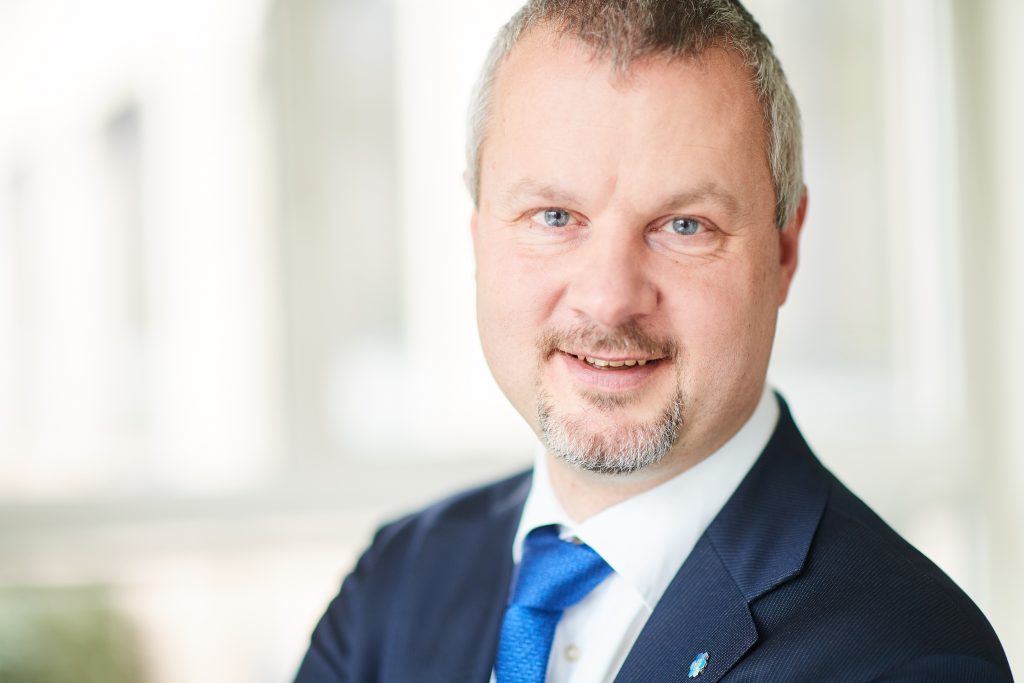Marco Mensink: steering Cefic in a kaleidoscopic world

Cefic director general Marco Mensink was interviewed recently by Chemical Watch, as he prepared to launch Cefic’s mid-century vision
Marco Mensink explained that Cefic’s recent office move is designed to put Cefic literally in the face of the EU’s decision-making institutions because advocacy just got harder: “The Juncker Commission is very different from the previous regime under José Manuel Barroso – you could engage with policymakers during interservice consultation. Under Juncker, you have to now engage with the cabinets in Berlaymont as well as the desk officers. It means we had to get closer to the centre of Brussels”.
“I have been brought in because what worked in the past is not working now. We need to kick industry to its next growth curve”, said Mensink, now two years into his post. During that time, he re-evaluated Cefic’s vision and mission and then re-evaluated them again a year later, putting its public affairs and communications on a new footing. And he has commissioned probing studies of the industry’s historic growth and future prospects as well as a comprehensive stakeholder review and deep-dives into potentially game changing topics such as “blockchain”.
Product safety and enhancing the sector’s reputation remain central challenges. The sector has fought many other more modern global challenges including product commoditisation and loss of competitive lead to Asian manufacturers, and to US players when cheap shale gas came on the scene.
In the last two years a ‘new issue’ has emerged – plastic waste. Another urgent planetary drama – global warming – is focusing corporate minds more intensely than ever on future risks and opportunities. The chemical sector has long been forcing downwards the energy intensity of chemicals production and has been active in the EU’s carbon trading scheme. But it is now keen to help other sectors – its customers – to do the same and reduce CO2 emissions.
Similarly, Mensink wants to turn REACH compliance from a challenge into an opportunity. While the organisation takes seriously ECHA’s view that it needs to improve dossier compliance, Mensink wants the agency to support the industry in pursuing a bigger agenda in future.
“We are moving to a much more fragmented world”, he said. In this fragmented world, “You have Europe doing its own thing. That ‘thing’ is its insistence on higher environmental and health standards and its pledge for a circular economy. No other economic bloc appears to be prioritising these issues. “We can either shout it is all horrible in Europe or we can find a solution”.
A multi-stakeholder survey commissioned by Cefic last year delivered some additional food for thought about what the chemicals industry should and would look like in 2050. The Delphi report was key in helping Cefic to finalise two years of work to guide the chemical industry to future prosperity. This collective thinking is embodied in Cefic’s Mid-Century vision report, just launched. The report constitutes a proposal to redefine ‘the European way’ and signpost how the European chemical industry can get ahead of events to help shape them (see separate story).
The kaleidoscope
The starting point for Cefic’s thinking was an acceptance that the days of comfortable scenarios and economic and political forecasts are over. It is now a case of foresighting rather than forecasting, Mensink explained. “If you look at all the trends that could potentially have an impact on the chemicals sector and if each trend is represented by a different colour then the world looks different depending on the turn of events and disruptors”.
How to steer a course through such times? It requires a lot of work and a willingness to pose questions, for which there are, as yet, no answers, he said. But it also means that Cefic’s structure needs to change; that industry will need to work with government; and that society will need to recognise that [the products and services] it needs and wants come at a cost.”
Integration is a big part of the solution. The industry needs to see the huge advantages that exist on its doorstep. We have a massive untapped resource: waste. Where the integration rubber hits the road is when it is applied to the concept of chemical recycling. Cefic has joined forces with Plastics Europe to lead a European Alliance for Chemical Recycling. “We are pushing the Commission really hard to work with us on an innovation strategy for the chemicals sector, part of which involves circularity”.
Another global driver is digitalisation – a key theme of the Mid-Century Vision Report. Transparency will increase and data availability will grow exponentially. Meanwhile, monitoring technology is evolving rapidly to facilitate detection of chemicals in ways never before possible. The vision will emphasise that “as a concept of the future it makes a lot of sense that we put a lot of effort into understanding where our chemistry goes and when it comes back and how we treat it. And this is besides cleaning up our legacy”, he concluded.
Read the full interview in Chemical Watch (subscription-only)